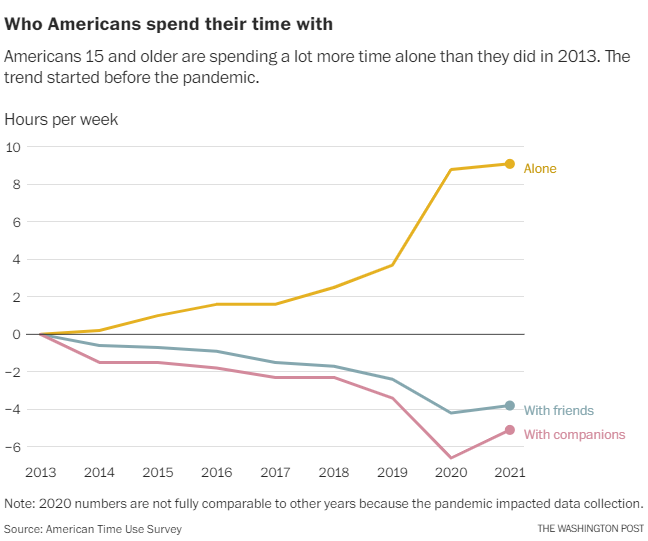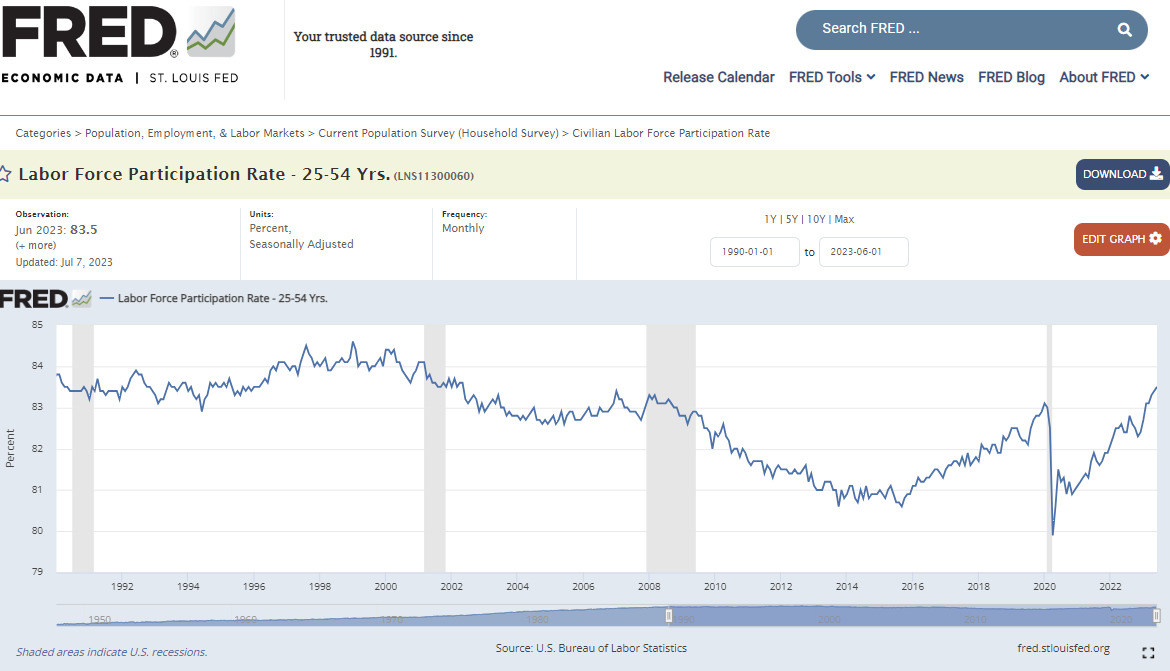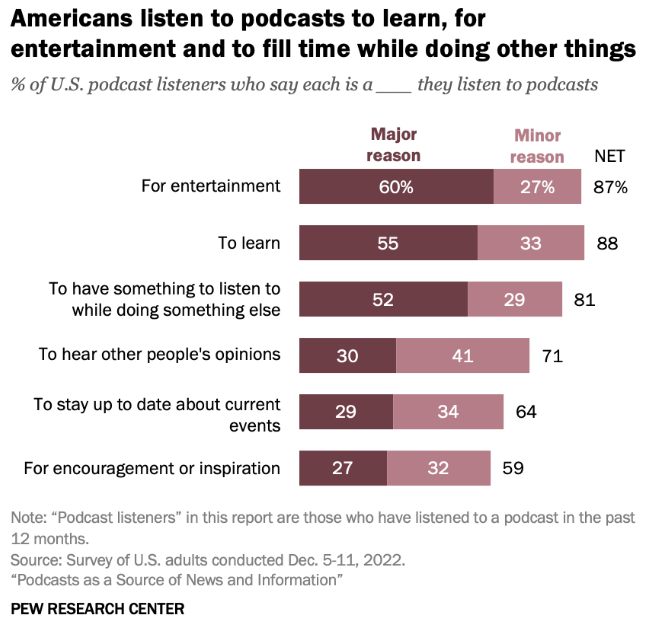We’re alone — the importance of meeting IRL
Studies show we’re working more, we have fewer friends, and we spend more time by ourselves. In a hyper-connected world, we’re more alone than ever before.
By Wentai Xiao
We’re alone.
We’re more alone than ever — and our solitude is observable.
First, we have fewer close friends: the percentage of Americans who say they have fewer than two close friends has doubled since 1990, from 16% to 32%, while the percentage of Americans who say they have five or more close friends has halved, from 63% to 38% (footnote i).
In other words, we’re seeing this at both ends of the spectrum--not only are there fewer social butterflies at the top but there are more loners at the bottom.
Second, we’re spending a lot more time alone: Americans 15 and older report spending 9 more hours per week today than they did 10 years ago (footnote ii). Not only do these trends stretch back to well before covid, but with the advent of online education, decline in civic and organized religious activities, adoption of remote and hybrid work, and secular decline in prime age participation in work itself (footnote iii), we lack an obvious catalyst for turning them around.




The Internet Helps... And Doesn’t Help
Many point to higher consumption of digital goods as a substitute for spending time with other people. Whether it’s multiplayer online video games, imbibing hot takes on current events, consuming and contributing to blogosphere content, etc. the argument is made that the Internet connects people and indeed connects them in a way that real life circumstances might constrain. We are exposed to people and perspectives online that we would otherwise never get a chance to interface with in the physical world. All this might be true. So should we be concerned that we have fewer closer friends and we’re spending more time alone?
The Case for Real World Interactions
While a case can be made for widespread discontents--manifesting observably in mental health trends and perhaps less observably but no less acutely in a seemingly intractable pervasive sense of loneliness--and hence, the inadequacy of exclusively online social life, our concern here is to make the case instead for the benefits of more real world meetings and relationships. We find real world meetings and relationships as uniquely important in (1) further expanding and challenging our horizons (2) rendering those horizons less passive and more active.
What we mean by ‘horizons’ is an individual’s vision for desirable human life. [Consider cutting: While an extreme form of relativism would reject such framing (i.e. how one can person opine on what is desirable for another person), a common interest in the ways we relate to one another as the basis of the world we live and pursue happiness within would argue for vigorously interrogating and expanding our ‘horizons’ as above defined.]
First, while online interactions can certainly bring us new perspectives, perhaps from people and places we may never otherwise encounter in the real world, there is a widely known danger of over-selecting into a narrow range of viewpoints, with algorithmically based applications serving us content that exclusively falls within this range.
In real world relationships, where interactions are chaotic and lack intelligent design (determinism), the content that emerges from them can be far more spontaneous. In other words, there is an organic quality to content in real world encounters because people in the wild, unlike applications serving up dependably engaging instances of people, are far less deterministic. Thus, real world meetings and relationships have the potential to expand our horizons in a very different--unpredictable--way than online interactions (where we have to initiate ‘new searches’, as it were).
Second, real world encounters are more likely to render discovery of new perspectives actionable. Four people posting about the same topic to a subreddit or community forum could begin meeting in real life and build organized activity around that topic. Maybe it’s quitting alcohol; making sourdough; increasing child literacy rates; watching and critiquing old films. Whatever it is, there is a way in which the online world enables us to explore our interests while often keeping them passive (we’re reading, commenting, listening together), whereas an interrogation of those interests with people in the same place can result in building, creating, and organizing together. Real world interactions function importantly to encourage and nourish actionability of ideas that may have been seeded online.
How Podcasts Can Filter for Real World Interactions
For both the reasons above, there’s never been a better time to find people in the real world where online activities have already engendered a common scope of questions--but not necessarily a narrow range of answers to them. Podcasts act as a powerful top-of-funnel for not only the broad set of questions that our horizons might invoke but also for the conversational and behavioral heuristics we might prefer in pursuing those questions. Indeed, survey results suggest that podcasts address a tremendous variety of needs today, from entertainment, to learning, to opinion sourcing, to staying up to date on news and current events. Given that we’re more alone than ever, where real world interactions could uniquely help us in expanding our horizons as well as rendering those horizons more actionable, using podcasts as a top-of-funnel screening for the big questions that will produce high hit-rate, meaningful real world meetups has never been more timely, or more needed.
MORE LIKE THIS




